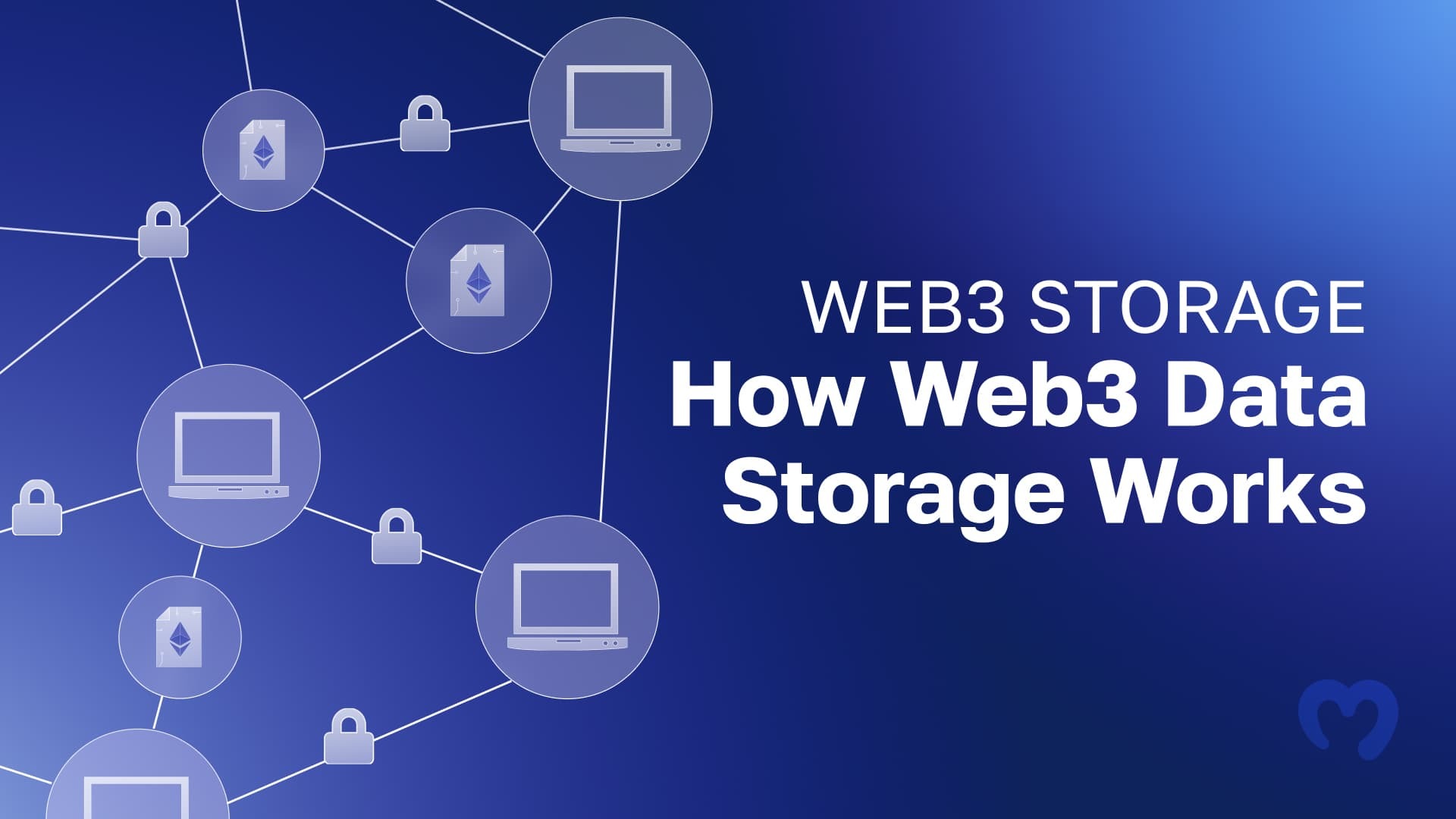
Decentralized storage solutions are an integral part of the new internet era known as Web3. While blockchain technology is often associated with Web3, it’s not the only requirement for Web3 data storage. In this article, we will explore the basics of Web3 storage, where Web3 data is stored, and delve into two reputable Web3 file storage alternatives, namely IPFS and Filecoin. We will also discuss how Moralis simplifies the usage of Web3 storage solutions.
Contents
What is Web3 Storage?
Web3 storage refers to a decentralized storage solution that ensures users have complete ownership and control over their data. Unlike centralized storage solutions like Google Cloud or Dropbox, Web3 storage eliminates the need to trust a central authority and avoids a single point of failure. With Web3 storage, files are stored on a network of computers instead of a single server.
Where is Web3 Data Stored?
Web3 data is stored on a network of computers instead of a single server. This network can vary in its nature and mechanics, as different projects are exploring various approaches to achieve the ultimate decentralized storage solution. While some might assume that everything can be stored on the blockchain, the reality is different. For example, NFTs do not store the files representing them on the blockchain but rather store a link to the metadata file on-chain. Different types of data require different storage solutions.
Introducing Decentralized Data Storage Solutions
Various projects focus on decentralized data storage solutions in the Web3 space. Some of these projects include Holo, Crust Network, Sia, Arweave, Storj, and Filecoin. Among these alternatives, we will focus on IPFS and Filecoin. IPFS is a distributed system that allows users to upload, store, and access websites, applications, data, and files in a decentralized manner. Filecoin, built on top of IPFS, is an open-source storage marketplace that offers decentralized and secure data storage and retrieval.
What is IPFS?
IPFS, or InterPlanetary File System, is a peer-to-peer (P2P) hypermedia protocol that enables decentralized hosting and access to content. Unlike the traditional HTTP system, which relies on location-based addressing, IPFS uses content addressing. Each piece of content within the IPFS ecosystem has a unique content identifier (CID) that allows users to find files, websites, and data based on their actual content rather than their location. IPFS links pieces of content together, creating a resilient and open web.
What is Filecoin?
Filecoin is a decentralized storage network built on IPFS. It serves as a cloud storage marketplace, protocol, and incentive layer designed to ensure secure and efficient web storage free from corporate control. By allowing anyone to participate as a storage provider, Filecoin achieves economies of scale and offers hyper-competitive storage prices. The network verifies data storage using cryptographic storage proofs, ensuring the security and authenticity of stored data. Filecoin provides users the flexibility to customize storage strategies based on redundancy, retrieval speed, and cost preferences.
The Best Web3 Storage Provider – Use Web3 Data Storage with Moralis
In our opinion, IPFS is currently the best Web3 storage provider. Moralis, a Web3 API provider, simplifies the usage of IPFS for dapp developers. With Moralis’ IPFS API, developers can effortlessly upload files to IPFS. By following Moralis’ documentation, developers can obtain their Moralis Web3 API key, install the Moralis SDK, and create a script to upload files to IPFS using the provided API endpoint. Moralis makes Web3 development seamless and user-friendly.
FAQs
Q: What is Web3 storage?
A: Web3 storage is a decentralized storage solution that allows users to have complete ownership and control over their data without relying on a central authority.
Q: Where is Web3 data stored?
A: Web3 data is stored on a network of computers instead of a single server, ensuring decentralization and avoiding a single point of failure.
Q: What are some decentralized data storage solutions in Web3?
A: Some decentralized data storage solutions in Web3 include IPFS, Holo, Crust Network, Sia, Arweave, Storj, and Filecoin.
Q: How does IPFS work?
A: IPFS is a distributed system that uses content addressing to host and access content. Each piece of content has a unique content identifier (CID), allowing users to find files based on their content rather than their location.
Q: What is Filecoin?
A: Filecoin is a decentralized storage network built on IPFS, offering secure and efficient data storage and retrieval. It functions as a marketplace, protocol, and incentive layer.
Conclusion
Web3 storage is an essential component of the decentralized internet era. By leveraging projects like IPFS and Filecoin, users can experience true ownership and control over their data. Moralis simplifies the usage of Web3 storage solutions, enabling developers to seamlessly integrate decentralized storage into their dapps. Embracing Web3 storage solutions empowers developers to contribute to a decentralized and trustless future.







